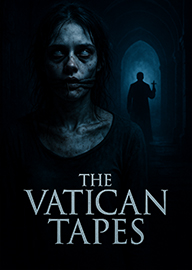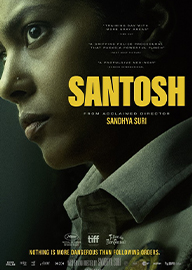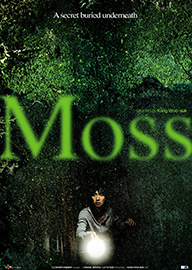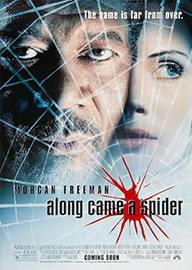The Osterman Weekend
- 5.8
- Thriller
- 1983
- 1h 56m
- TV-14
A gripping 1983 spy thriller directed by Sam Peckinpah, The Osterman Weekend blends Cold War paranoia, political conspiracy, and psychological manipulation into a chilling narrative about surveillance, betrayal, and the fragile boundaries between friendship and treachery, making it one of the most unsettling espionage dramas of its era.













Comments
0Reviews
0Summery
1Please sign in to comment.
Please sign in to review.
The Osterman Weekend from 1983 stands as a fascinating and unsettling political thriller that encapsulates the paranoid spirit of Cold War cinema while being remembered as the final directorial effort from Sam Peckinpah. Adapted from the novel by Robert Ludlum, the film weaves a labyrinthine story of manipulation, surveillance, and betrayal that reflects both the era’s geopolitical anxieties and Peckinpah’s signature themes of mistrust and moral decay. At the center of the narrative is John Tanner, a popular television journalist played by Rutger Hauer, who is suddenly confronted by CIA agent Lawrence Fassett, chillingly portrayed by John Hurt. Fassett convinces Tanner that his closest friends, including the enigmatic Osterman played by Craig T. Nelson, are in fact KGB agents embedded in American society. From this premise unfolds a dense tale where nothing is as it seems, trust is shattered, and the very fabric of friendship is poisoned by the constant threat of deception. The film establishes its atmosphere of dread early on by forcing the protagonist and the audience into a world where surveillance is constant, privacy is obliterated, and paranoia governs every interaction, setting the tone for a relentless descent into a conspiratorial nightmare.
The story deepens as Tanner reluctantly agrees to assist Fassett in exposing the supposed spies among his friends during a weekend gathering at his home. Peckinpah stages this setup as a pressure cooker environment, where ordinary social interactions are charged with suspicion and underlying tension. The casual banter of old friends is slowly stripped away to reveal hidden doubts, anger, and hostility, all of which are magnified by the manipulative interventions of Fassett and his CIA backers. The use of surveillance cameras and screens becomes a visual motif, with characters observed, judged, and manipulated in real time, blurring the lines between reality and fabrication. This stylistic choice underscores the film’s commentary on media control, the abuse of power, and the erosion of trust in an age where governments sought dominance not only through weapons but through psychological and informational warfare. As Fassett pushes Tanner further into betrayal, the viewer becomes just as unsure as the protagonist whether the accusations against Osterman and the others are truth or merely part of a deeper, darker agenda.
What makes The Osterman Weekend particularly compelling is the way it uses its ensemble cast to embody different facets of paranoia and complicity. Burt Lancaster appears as Maxwell Danforth, a senior CIA official whose presence adds gravitas and a menacing ambiguity, embodying institutional power at its most inscrutable. Dennis Hopper and Chris Sarandon provide memorable performances as Tanner’s friends, each bringing a layer of charm, duplicity, or hidden menace that keeps the audience constantly off-balance. Meg Foster, as Tanner’s wife, becomes a crucial emotional anchor while also representing the collateral damage inflicted on families caught in webs of suspicion and power games. Peckinpah, known for his violent and masculine storytelling, reins in the bloodshed here in favor of psychological violence, the kind that seeps into relationships and corrodes trust from within. The tension escalates not through explosive action but through carefully orchestrated suspicion, manipulation, and shocking revelations that keep both characters and viewers in a state of perpetual uncertainty. By the time the truth behind Fassett’s motivations and the CIA’s machinations begins to emerge, the audience has been fully immersed in a web where lies and truth are indistinguishable, and betrayal seems inevitable.
As the narrative drives toward its climax, The Osterman Weekend unveils its true power as an allegory of Cold War distrust and the destructive consequences of unchecked surveillance and state manipulation. The chilling finale reveals the fragility of human bonds when subjected to political paranoia, with the film ultimately asking whether any relationship can withstand the corrosive effects of suspicion and betrayal. Peckinpah’s direction, though criticized at the time for its uneven pacing and production conflicts, nevertheless imbues the film with a haunting atmosphere that lingers long after the credits roll. The final images leave audiences contemplating not only the fates of the characters but also the broader implications of living in a society where privacy is an illusion and truth is endlessly malleable. Over the years, the film has gained a cult following among admirers of political thrillers and Peckinpah enthusiasts who recognize its importance as both a product of its era and a prescient exploration of themes that resonate today in an age of digital surveillance and government overreach. The Osterman Weekend remains a striking, thought-provoking thriller that embodies the paranoia of the Cold War while standing as a cautionary tale about trust, manipulation, and the terrifying cost of political gamesmanship disguised as security.